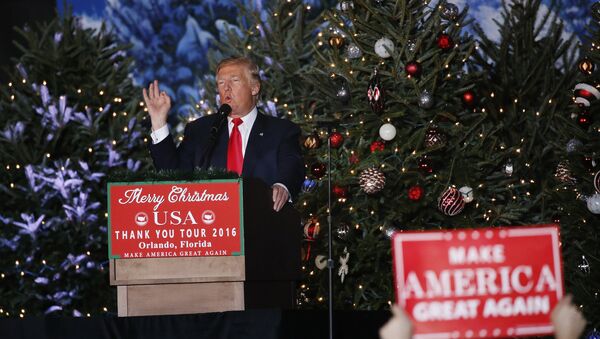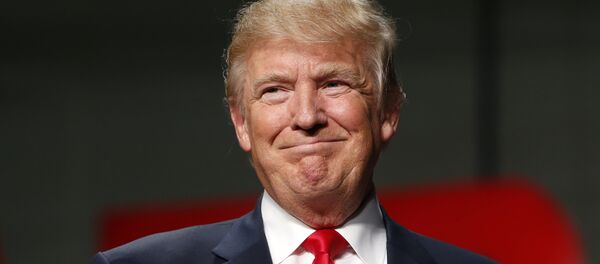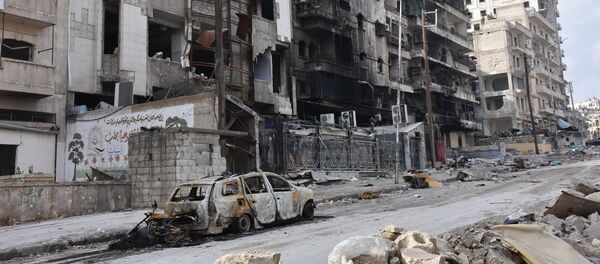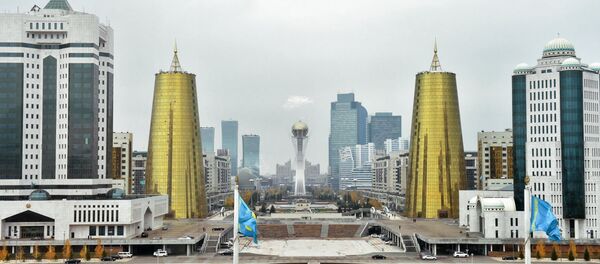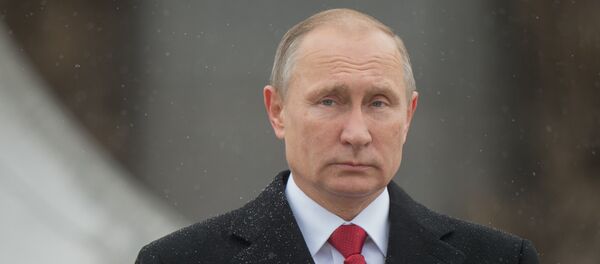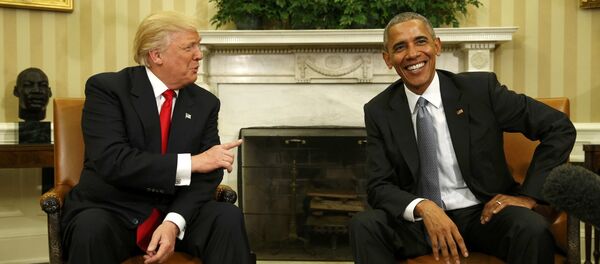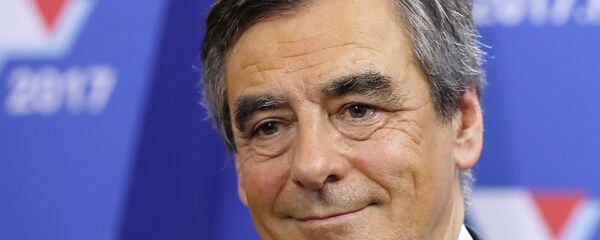US-Russia Ties Under Donald Trump
In November, Republican candidate Donald Trump won the presidential election in the United States. The future of Moscow-Washington relations is expected to be one of the foreign policy priorities of the next US presidential administration.
Donald Trump has repeatedly noted that he wants cooperation with Russia and eyes normal relations with Russian President Vladimir Putin.
Moscow has positively assessed Trump’s intention to normalize bilateral relations.
Trump and Putin already reaffirmed their readiness to work together to overcome the current crisis between Moscow and Washington.
Moreover, Trump’s choice for the post of US Secretary of State also reflects new US president’s willingness to break the ice with Russia. ExxonMobil CEO Rex Tillerson, who Trump nominated for the office, is known for his close business ties with Russia. He is also believed to have friendly relations with President Putin.
The Crisis in Syria
It was no coincidence though. The Syrian Army and Russian aviation were focused on the operation in Aleppo. Daesh terrorists took advantage of the situation and managed to take control over the ancient city of Palmyra, which was liberated in March.
Military experts predict that the terrorists could try to develop their advances, with a new offensive on Damascus, Hama and Homs. For the Syrian government, retaking Palmyra is crucial.
In addition, the liberation of Aleppo would allow for Syrian Army’s offensive in northern Syria, in the province of Aleppo and in the neighboring province of Idlib.
The situation in Syria is significantly influenced by foreign players, including Russia, the US, Iran, Turkey and Saudi Arabia. Some unexpected alliances would be possible in 2017. For example, currently Russia and Turkey maintain dialogue on the situation in the war-torn country.
The Future of Syrian Peace Talks
The recent developments on the ground in Syria presume that in the coming year there will be a chance to overcome the stalemate in the Syrian peaceful negotiations.
On December 9, UN Special Envoy for Syria Staffan de Mistura said that time had come to consider resumption of the intra-Syrian talks.
Despite all hurdles, there is a real chance that those talks will be revived. Recently, Moscow has maintained intense Ankara-brokered contacts with representatives of the Syrian opposition. Moreover, Russia and Turkey proposed to the Syrian warring parties a new platform for negotiations in Astana.
The Ukrainian Conflict
According to the Minsk agreements, the Ukrainian government had to implement a series of political reforms in coordination with the self-proclaimed Donbass republics, including a special status for the regions, an amnesty for local militia members and a constitutional reform.
However, no progress has been made in the outgoing year. In fact, Ukrainian President Petro Poroshenko cannot make serious concessions to the self-proclaimed Donbass republics, due to domestic and foreign pressure, particularly from the US.
As for the ceasefire in Donbass, it has been regularly violated throughout the year. At the same time, the contact line between Kiev and the self-proclaimed Donbass republics has been stable since February 2015 and is unlikely to change in the future.
The consultations of four working groups will continue in Minsk. There will also be new meeting within the Normandy Four format, encompassing Russia, France, Germany and Ukraine.
Possibly, Donald Trump’s foreign policy will also have an impact on the situation.
Anti-Russia Sanctions
The possibility to remove sanctions has been discussed since 2014. There are also opponents of sanctions within the European Union, including Austria, Hungary, Greece, Italy and Cyprus. There also those who believe that sanctions are justified but non-effective.
As for Washington’s restrictions, there is hope that during Trump’s presidency, the sanctions regime imposed by Barack Obama’s administration could be reconsidered.
Elections in Europe
In 2017, two leading EU’s nations, France and Germany, will hold elections.
In Spring 2017, France will hold a presidential election. According to polls, the candidate most likely to win the race is former Prime Minister Francois Fillon from The Republicans center-right party.
Fillon has already been labelled as a pro-Russian candidate. However, Fillon believes that France should remain a strategic ally of the US. At the same time, Fillon has criticized the policy of the French government towards Russia.
Germany will hold a parliamentary election next year. The new German government will depend on the results of the vote. Leader of the Christian-Democrat Union (CDU) Chancellor Angela Merkel announced she would run for her fourth term.
The Social Democratic Party of Germany is expected to decide on its candidate in January.
If none of the parties wins an absolute majority a coalition government will be formed in Germany.

